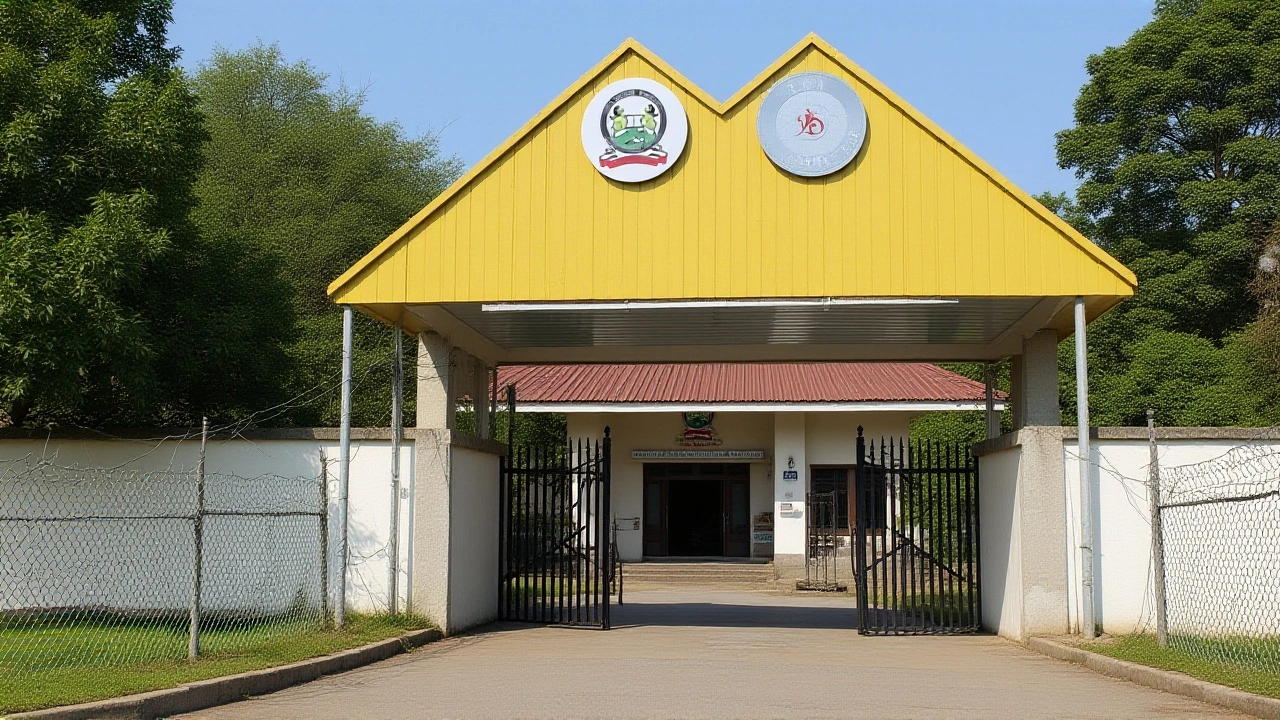When Kenya National Examinations Council (KNEC) announced on September 12, 2025 that no security officers will be deployed to escort the 2025 Kenya Primary School Education Assessment (KPSEA) and Kenya Junior School Education Assessment (KJSEA), the country’s biggest exam season is set to run on a leaner security model. The decision, made just weeks before exams begin on October 17, 2025, will affect more than 2.4 million learners sitting those two assessments, while two officers will still guard every Kenya Certificate of Secondary Education (KCSE) centre. The twist is that only “highly insecure” zones will see any additional guard presence.
Historical Context: How Exam Security Evolved in Kenya
For over three decades Kenya has relied on a thick layer of physical security to protect exam papers. In the early 2000s, each centre typically hosted a pair of police officers, a practice that continued through the 2010s despite rising costs. By 2020, the Independent Policing Oversight Authority (IPOA) reported a 12 % rise in complaints about officer misconduct at exam venues, prompting KNEC to rethink its approach.
Historically, the most high‑stakes exam has been the KCSE, the gateway to university. The lower‑level assessments – KPSEA and the newly introduced KJSEA – have traditionally enjoyed lighter oversight, but still received a minimum of one security guard per centre. The new policy flips that script, concentrating resources where the stakes are highest.
New Security Measures for 2025 Exams
Even without extra guards, KNEC is rolling out a suite of technical safeguards designed to keep fraud at bay:
- Personalised question papers: Every KCSE and KJSEA paper will bear the candidate’s name, index number and a signature line, making impersonation practically impossible.
- Smart padlocks: Pilot‑tested in 250 exam‑paper containers, these digital locks send real‑time alerts if tampered with.
- Calculator restrictions: Only non‑programmable calculators are allowed in KJSEA and KCSE papers that permit calculator use.
- Chain‑of‑custody protocol: Deputy County Commissioners (DCCs) will brief security officers before they handle any material container.
- Reporting hotlines: Misconduct can be reported to IPOA via toll‑free 1559, while KNEC runs its own lines at 0800‑721‑410 and 0800‑724‑900.
These steps aim to offset the reduced physical presence with digital accountability. As KNEC official Njengere put it, “Supervisors and invigilators are the frontline defenders of exam credibility.”
Responses from Officials and Stakeholders
At the launch held in Mtihani House – South C, Nairobi – Council chairperson Julius Nyabudi emphasized fairness and transparency. He said, “We must ensure that results reflect students’ true abilities, and that everyone involved adheres to the highest ethical standards.”
Teachers’ unions expressed mixed feelings. The Kenya Primary Teachers Association welcomed the cost‑saving angle but warned that “reliance on invigilators alone could stretch thin in remote schools where supervision is already a challenge.” Meanwhile, parent groups applauded the personalised papers, noting that “it gives families peace of mind that their child’s work can’t be stolen or swapped.”
Impact on Candidates: Numbers and Logistics
The 2025 exam cycle will involve 3,424,836 candidates across the three assessments. Breaking it down:
- 996,078 KCSE candidates – two security officers per centre.
- 1,298,089 KPSEA candidates – no dedicated officers unless the centre lies in a high‑risk area.
- 1,130,669 KJSEA candidates – same security model as KPSEA.
To staff this massive operation, KNEC will deploy 54,782 invigilators and 22,247 security officers nationwide. In the 150 “high‑risk” districts identified by the Ministry of Interior, additional officers will be posted to KPSEA and KJSEA centres, a move that should keep the overall security count manageable while still protecting vulnerable locations.

What Comes Next: Monitoring and Evaluation
After the exams conclude on December 5, 2025, KNEC plans a post‑mortem audit. The smart‑lock data will be analysed for any breach attempts, and a random sample of 5 % of personalised papers will be checked for signature authenticity. Findings will be presented to the Ministry of Education and IPOA in a joint briefing slated for February 2026.
Should the pilot prove effective, KNEC aims to expand digital lock usage to all future examinations, potentially phasing out static security officer deployments altogether.
Background: Why Examination Security Matters
Exam integrity is more than a bureaucratic concern; it underpins the credibility of Kenya’s education system and, by extension, the country’s talent pipeline. A 2019 leaked case involving forged KCSE results sparked public outrage and led to a 9 % drop in university enrolments the following year. Since then, KNEC has invested over $2.3 million in anti‑cheating technologies, yet the human element remains crucial.
The shift in 2025 reflects a broader global trend: using technology to complement, not replace, human oversight. Countries like South Africa and Ghana have already piloted biometric verification for exam candidates, a step Kenya may consider if the current reforms succeed.
Frequently Asked Questions
How does the reduced security affect primary school candidates?
Primary school candidates will rely more on invigilators and the new personalised question papers. In areas classified as “highly insecure,” KNEC will still station officers, so the safety net remains for the most vulnerable locations.
What are the new digital smart padlocks and how do they work?
The smart padlocks are Bluetooth‑enabled devices that log every opening and closing event. If a lock is forced or opened outside the scheduled window, an instant alert is sent to a central monitoring dashboard that KNEC staff can view in real time.
Can candidates still use calculators, and are there restrictions?
Yes, but only non‑programmable, codeless calculators are allowed in papers that permit them. Devices with stored formulas, graphing capabilities, or internet access are strictly prohibited and will be confiscated.
What channels exist for reporting exam irregularities?
Stakeholders can call toll‑free numbers 0800‑721‑410 or 0800‑724‑900, text 079‑806‑0000, or use KNEC’s social media accounts on Facebook, X, Instagram, WhatsApp, Telegram and LinkedIn. Misconduct by security officers goes directly to IPOA via the 1559 line.
Will the security model change for future KCSE exams?
KNEC plans to review the smart‑lock data and invigilator reports after the 2025 cycle. If the technology proves reliable, the council may further reduce physical officer deployment for KCSE as well, moving toward a fully digital custody chain.






